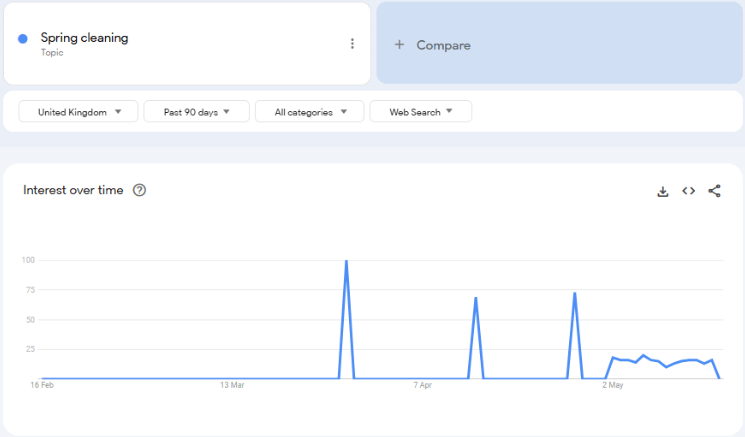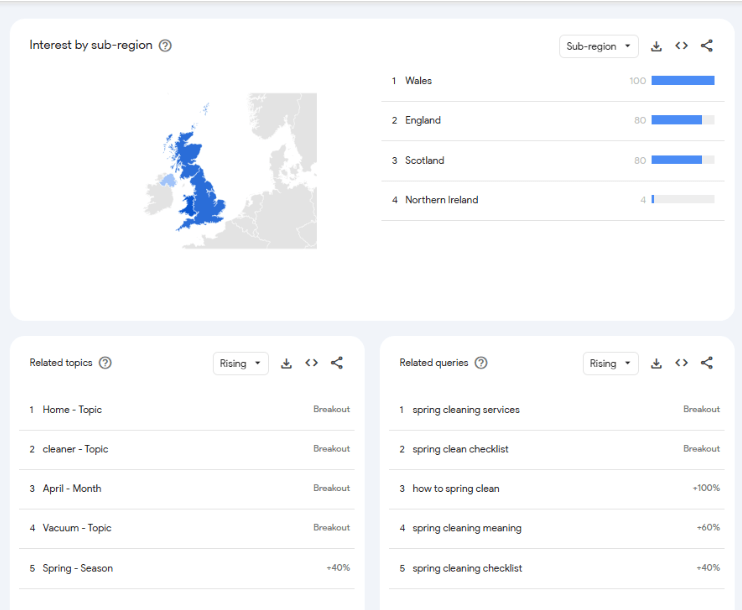🧹 Spring Cleaning in the UK: Definitions & Key Insights
Spring cleaning is a seasonal practice in the UK, traditionally occurring in early spring (March–April), involving a thorough and often deep clean of one’s living space, typically beyond routine housekeeping. It includes detailed tasks such as decluttering, dusting hard-to-reach areas, washing fabrics, and cleaning overlooked surfaces (e.g., skirting boards, windows, appliances).
In contemporary usage, spring cleaning has evolved into:
- A holistic well-being ritual, promoting mental clarity, reduced stress, and a renewed sense of control.
- An expression of eco-consciousness, with a growing preference for sustainable, non-toxic, and water-efficient cleaning products.
- A reflection of simplified lifestyles, focusing on essential tools and minimalist routines.
- An increasingly year-round behaviour, with many choosing to clean regularly rather than seasonally.
While rooted in tradition, the modern interpretation of spring cleaning encompasses not just physical hygiene but emotional, environmental, and even technological dimensions — including the adoption of automation tools like robotic cleaners.

📊 Participation & Interest
- Prevalence: A significant majority of UK households engage in spring cleaning annually. A survey in 2022 revealed that over 93% of households undertake a spring clean at least once a year, with the highest commitment observed among individuals aged 55–64. Source: Thane UK – Blog.
- Perception: A YouGov survey found that 79% of UK adults interpret “spring clean” as a rigorous clear-out rather than a light tidy-up. Source: YouGov
- Timing: March and April are the preferred months for spring cleaning, with 40% initiating in March and 35% in April.
- Typical Activities: Tasks often undertaken during spring cleaning include washing curtains (36%) and dusting skirting boards (33%). Source: The Sun
- Stress Factors: Nearly half of Britons experience stress related to household chores, with oven cleaning being particularly dreaded. Source: psychreg.org
- Interest: People search online mostly for terms like:
- Spring clean (1K UK/12K global search volume)
- Spring cleaning checklist (260 UK/6K global search volume)
- How to spring clean (30 UK/310 global search volume)
(Data retrieved via semrush.com on the 16.05.25)


(Google Trends snapshot Feb-May 25 for “spring cleaning” searches)
Preferences & Trends:
- There’s a growing demand for sustainable cleaning products. Over two-thirds of UK adults who clean the home are interested in products designed to reduce water usage. Additionally, 60% of UK consumers are willing to pay a premium for environmentally friendly alternatives to everyday cleaning products. Source: Jani King
- The UK cleaning industry is experiencing growth in automation and robotics. Cleaning robots are becoming more common in both commercial and residential settings, driven by the demand for operational efficiency and cost-effectiveness. Source: Jani King
- Retail sales in the UK saw a significant boost in April 2025, driven by sunny weather and the timing of the Easter holiday. Spending in garden centres increased by 25%, and DIY sales rose by 4%, indicating a surge in home improvement and cleaning activities. Source: The Times
If you want to share more information related to this topic with us, feel free to get in touch.
Disclaimer: all the information provided was correct at the time of publication and was collected with the help of accredited tools and AI.































